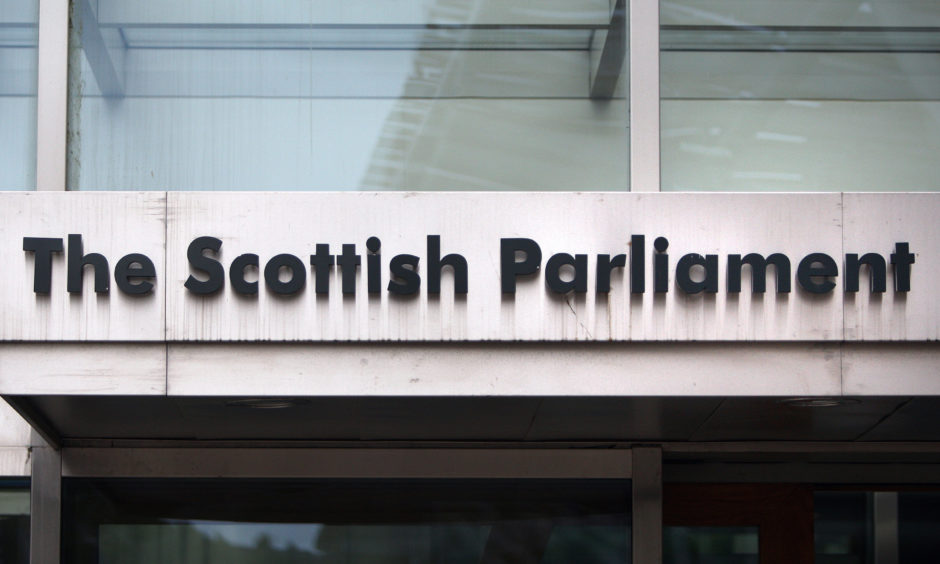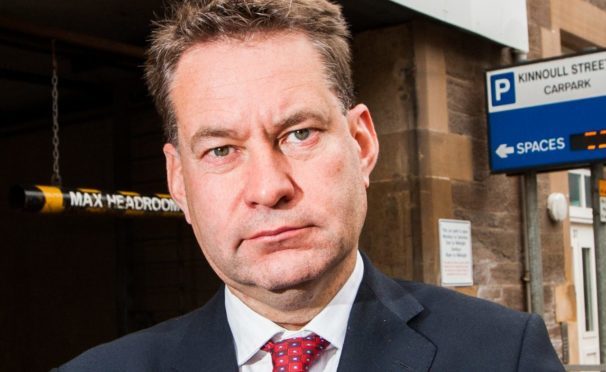Nicola Sturgeon’s private secretary held two meetings with a female civil servant before she made a complaint against Alex Salmond, the former first minister has claimed.
In a letter from his lawyer, Mr Salmond has also accused the Scottish Government of seeking to distract MSPs from investigating Nicola Sturgeon and of attempting to “tarnish” his reputation.
Mr Salmond claimed Ms Sturgeon’s private secretary, John Somers, met in November 2017 with one of the women who was to make a complaint against the former first minister.
The Conservatives said the Scottish Government was trying to cover up “secret” meetings following the publication of three letters written by Mr Salmond’s lawyer, David McKie.
One letter, which was sent to Salmond inquiry convener Linda Fabiani, claimed there were documents showing that one of the complainers had met Mr Somers on two occasions in November 2017.
It’s the first time we’ve heard of secret meetings between Nicola Sturgeon’s trusted civil servant and private secretary, John Somers, and one of the people who reported Alex Salmond’s alleged behaviour to the government.”
Tory MSP Murdo Fraser
“Some of those documents confirmed that one of the complainers had met the private secretary to the first minister on two occasions in November 2017,” Mr McKie’s letter said. “On the second occasion, another individual was also present. The identity of the second individual is not known to us.”
‘Frankly outrageous’
In the past, Ms Sturgeon has said she first learned of the Scottish Government investigation into Mr Salmond’s behaviour when he visited her at her house on April 2 2018. Formal complaints by two civil servants were made a few months earlier in January that year.
In a blistering attack on the government, Mr McKie’s letter also accused Ms Sturgeon’s administration of making a “frankly outrageous” bid to release documents relating to the claims made against Mr Salmond.
Mr McKie claimed the Scottish Government intended to provide the Holyrood committee overseeing the Salmond inquiry with two documents produced by permanent secretary Leslie Evans.
The clear objective of the Scottish Government is to tarnish the reputation of our client and to seek to distract the committee from the core remit of investigating the Scottish Government and first minister.”
David McKie, Alex Salmond’s lawyer
The documents related to Mr Salmond’s successful civil action against the Scottish Government and, Mr McKie said, could not be obtained without a court order.
The lawyer said the documents in question were “entirely concerned” with the substance of the complaints.
Mr McKie said the Scottish Government seemed “determined to spend even more public money in a continued effort to publicise those documents” to revisit the claims made against Mr Salmond.
He added: “The clear objective of the Scottish Government is to tarnish the reputation of our client and to seek to distract the committee from the core remit of investigating the Scottish Government and first minister.”
Another newly published letter from Mr McKie claimed a document that had been the subject of a warrant served on the Scottish Government in November last year ahead of Mr Salmond’s criminal trial had not been disclosed to his legal team.
Mr Salmond was cleared earlier this year of all sex offences after a high-profile trial.
Letters an ‘extraordinary attack’
Mr McKie demanded “an explanation for its omission”, noting it was now part of the Scottish Government’s submission to the committee investigating the Scottish Government’s botched handling of complaints made against Mr Salmond.
A third letter asked Ms Fabiani if her committee had approached the Lord Advocate for permission for Mr Salmond to refer to “essential material” disclosed to him in the preparations for his criminal trial.
Tory MSP Murdo Fraser, who sits on the Salmond inquiry, described the letters as an “extraordinary attack” on the government and its “secretive approach to this inquiry”.
“We’ve now heard of even more information that the SNP government tried to keep hidden. They apparently didn’t reveal a key document that should have been disclosed.
“And it’s the first time we’ve heard of secret meetings between Nicola Sturgeon’s trusted civil servant and private secretary, John Somers, and one of the people who reported Alex Salmond’s alleged behaviour to the government.
“The government must come clean if Nicola Sturgeon’s private secretary, John Somers, knew of these complaints in November 2017 and tell us about the other official who was in the second meeting.”
Mr Fraser added: “These explosive letters have uncovered yet more secret meetings and information that the SNP government tried to cover up. It seems they will stop at nothing to keep their mistakes quiet.”
Sturgeon’s argument ‘is in tatters’
The letters were published as the Conservatives stepped up their claims that Ms Sturgeon had misled Holyrood during her account of meetings she held with Mr Salmond about the Scottish Government’s investigation into him.
The Conservatives renewed their attacks after Scottish Information Commissioner Daren Fitzhenry ruled content provided to him “suggested that some of the contact between the First Minister and Mr Salmond related to government rather than party business”.
When asked why more assiduous records were not kept of the meetings with civil servants, Ms Sturgeon has argued they were SNP rather than government business.
Mr Fraser said: “The First Minister’s argument that these meetings were purely party matters is in tatters. As we’ve argued all along, these meetings were government business and should have been recorded. By trying to claim otherwise, Nicola Sturgeon is misleading parliament again.

A spokesman for the first minister said: “The Tories are deliberately conflating different issues. The First Minister stands by her statements to parliament, and has already provided detailed written evidence to the committee, which has now been published.
“As the First Minister has repeatedly made clear, she looks forward to giving evidence in person to the committee in due course, and is awaiting a date from the committee to do so.”
A Scottish Government spokesperson said: “The Scottish Government is not seeking to provide any information to the committee about the substance of the complaints, and has never done so, as the Deputy First Minister made clear in his letter to the committee on October 14.
“In addition, the committee has made it clear it does not wish to receive such information: a position we have understood since the outset and agree with, not least because releasing that information would risk identification of the individuals who made complaints.
“As was the case with the 1,000 pages of documentation provided to the committee so far by the Scottish Government, all information about the substance of the complaints has been and will be redacted from documents which are submitted by the Scottish Government.”

